Solar batteries are a must-have if you have a solar system installed in your home. They store excess energy allowing you to use it during power outages and at night. But how many batteries do you need for a 3000 watt solar? Let’s find out.
Types of Batteries
There are four main batteries for a solar system: lead acid, lithium ion, nickel based, and flow batteries.
-
Lead acid batteries
Lead acid batteries are the most popular solar batteries on the market. They have been in use for decades, if not centuries. In fact, the first lead acid batteries were used to store solar energy in the 1800s.
Lead acid batteries come in two options: sealed lead acid batteries and flooded lead acid batteries. Among the four, lead acid batteries are the cheapest making them ideal for people on a budget. They are also reliable and easy to recycle.
Unfortunately, they require regular maintenance, especially the flooded lead acid batteries. In addition, they have a lower depth of discharge (DoD), meaning you have to be recharged quite often. That said, they are an ideal option for emergency backup storage.
-
Lithium ion batteries
Lithium ion batteries are a new entrant on the market. While new, they have become the go-to solution for most homeowners. Besides, most companies are using lithium ion to produce solar batteries.
They come in two variations, nickel manganese cobalt (NMC) and lithium iron phosphate (LFP) batteries. NMC batteries are used in everyday technology such as laptops, smartphones, and electric cars. LFP batteries are mostly used in solar batteries and other specific applications.
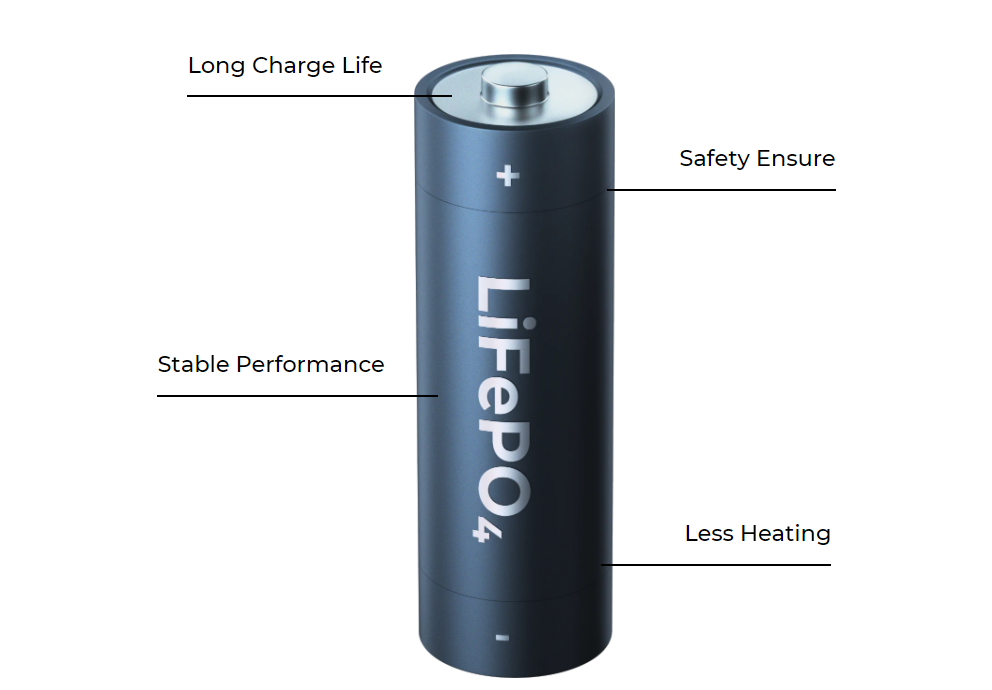
Lithium ion batteries are maintenance-free, making them an ideal option for new solar system owners. They also have a higher energy density and require minimal installation space. Lightweight and portable, they are an excellent option for camping, backpacking, and hiking.
Unfortunately, they are more expensive than lead acid batteries. NMC options don’t have efficient thermal runaway, meaning they can catch fire if installed incorrectly.
-
Nickel-based batteries
Nickel cadmium (Ni-Cd) batteries are less popular compared to lithium ion and lead acid batteries. That said, they are the best option for operating in extreme temperatures. They are also more durable and require no maintenance.
The downside of Ni-Cd batteries is that they are extremely toxic. Some countries have banned the use of cadmium, making them hard to dispose of. Moreover, they are susceptible to memory effect, hence cannot hold a charge for long.
-
Flow batteries
Flow batteries are also a new entrant in the market. They feature a water-based electrolyte that is stored in two separate chambers. Electrolytes flow from one chamber to the other when discharging.
They are bulkier and larger than other batteries. As you’d guess, they are more expensive and are not viable for residential applications. They are mostly used for commercial applications.
Unlike other batteries, flow units have a 100% depth of discharge (DoD), meaning you can use all energy stored in the battery. Furthermore, they have exceptional thermal runaway so you don’t have to worry about overheating.
Why Do You Need Batteries for the Solar System?
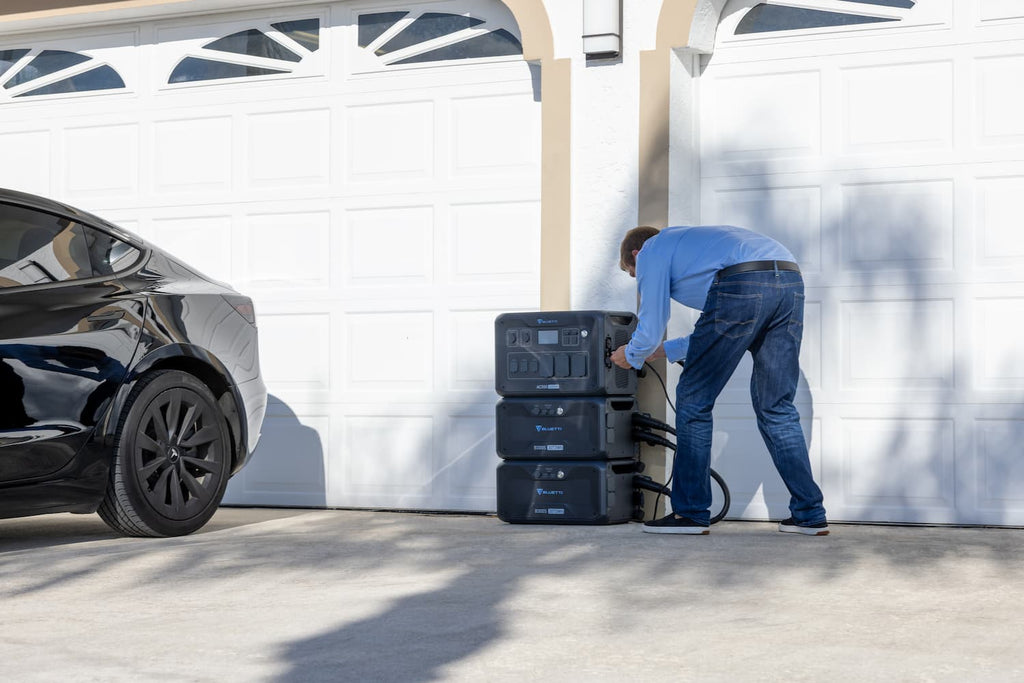
Well, there are many reasons why you should install batteries for you solar system. Here are some of the most crucial reasons:
-
Resilience
If you want to be resilient against constant power outages, then you need to install solar batteries. A solar system without batteries will prove useless during power outages, especially at night, since there’s no sunlight to draw energy from.
With solar batteries, you can charge them during the day using the solar panels. You can then use the stored energy at night. This allows you to be independent from the unreliable grid. Furthermore, you can charge extra batteries that you can use during emergencies.
-
Independence
Do you want to be independent of your unreliable grid system? If so, consider buying batteries for your solar system. With them, you can take control of electricity costs and reduce your bills significantly.
Solar batteries when used at night, save you from peak hour rates, reducing your electricity bills significantly.
-
Make use of the solar energy
A standard solar system setup involves installing solar panels and connecting them to the grid. If the solar panels do not produce ample energy, your house will draw from the grid. This means you’ll pay monthly electricity bills as you would without a solar system.
With the batteries, you can store excess power for use during a power outage or on cloudy days. And since you don’t have to sell the excess power to your utility company, you have greater control over how you use your power.
-
Reduced carbon footprint
If you fancy sustainable living, installing solar batteries is a viable option. Solar batteries allow you to use power from sunlight. And converting sun rays into electricity does not emit harmful gases. It doesn’t pollute the environment. Using solar energy can also help you consume fewer resources.
How Many Batteries Do I Need for 3000 Watt Solar?
For a 300 watt solar, you’d need at least 4 to 8 12V batteries. However, the actual number depends on several factors such as battery capacity and daily power consumption. The charge controller is another factor that can affect the number of batteries. As you know, charge controllers allow fast charging of solar batteries. And if this is the case with your system, you might require less than 8 12V batteries.
Is it Worth to Buy Home Battery Backup for Solar System?
Yes, it is worth buying a home battery backup since it affords you greater energy independence. You don’t have to rely on the grid for your energy needs. You are also protected against prolonged power outages caused by natural calamities or human error.
Buying a home battery backup also helps reduce your electricity bills. Since you’ll be using power from the batteries rather than the grid, you’ll not be paying monthly bills. For instance, combining solar panels with BLUETTI home battery backup units can help you bring down your bills significantly.
Home battery storage systems are maintenance free. This is unlike conventional backup generators that require regular maintenance like lubrication. Moreover, you don’t need to hire a technician to inspect your battery storage system.
By buying battery storage systems, you benefit from federal and state tax credits and rebates. And some of BLUETTI home battery backup solutions allow you to qualify for Federal Tax Credit.
And BLUETTI is at the forefront of sustainability by utilizing LiFePO4 batteries, a cutting-edge and eco-friendly energy storage solution. These lithium iron phosphate batteries not only provide reliable and long-lasting power for BLUETTI's products but also contribute to environmental conservation. LiFePO4 technology ensures a cleaner and greener energy source, aligning with BLUETTI's commitment to environmental protection.
Here are a few battery storage systems you can buy today from BLUETTI:
BLUETTI AC500 + B300S | Home Battery Backup
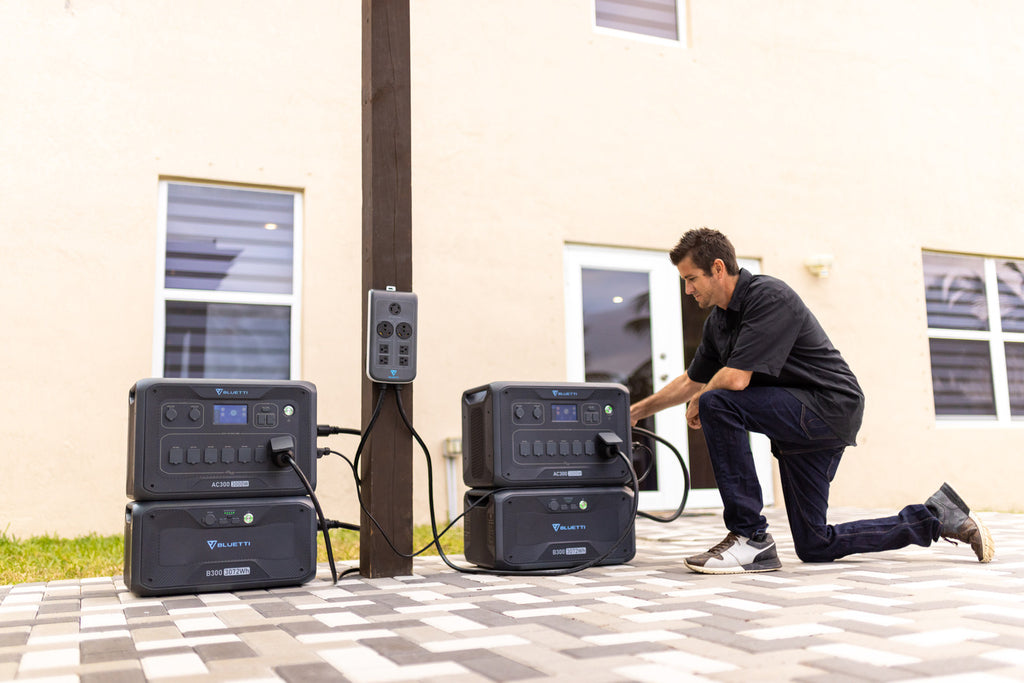
If you want to qualify for the 30% Federal Tax Credit, consider buying the AC500. The unit has a 5,000W rated power and 10,000W surge wattage. With such high surge wattage, it can jump start most, if not all large home appliances. The 5,000W rated power means running the large appliances will be seamless.
While it has an initial capacity of 3,072Wh, you can expand it to 18,432Wh. This gives you more flexibility, adding or reducing capacity based on your energy needs. Like most BLUETTI home battery backup systems, it comes with an app for remote control and monitoring. You get 16 different outlets and 6 ways to recharge the unit.
BLUETTI EP500Pro Solar Power Station | 3,000W 5,120Wh
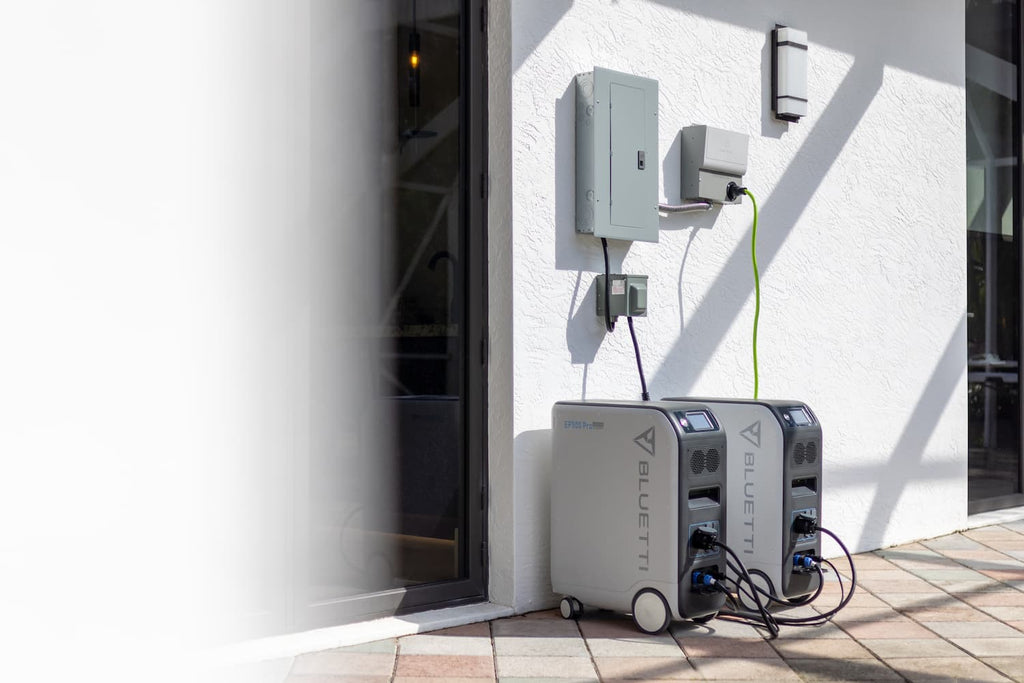
Another viable option is the EP500Pro. While you will not qualify for Federal Tax Credit, you will enjoy uninterrupted power supply during a power outage. Coming with a 5,120Wh capacity, you can rest assured you’ll have enough energy to power most of your devices. And since it comes with rubberized wheels, moving it from room to room is easy.
The unit also comes with a smart touchscreen for easier settings adjustment. You can do the same using an app for iOS and Android devices. With the EP500Pro, you can store enough energy to last you days during camping trips.
BLUETTI EP900 + B500 Home Battery Backup
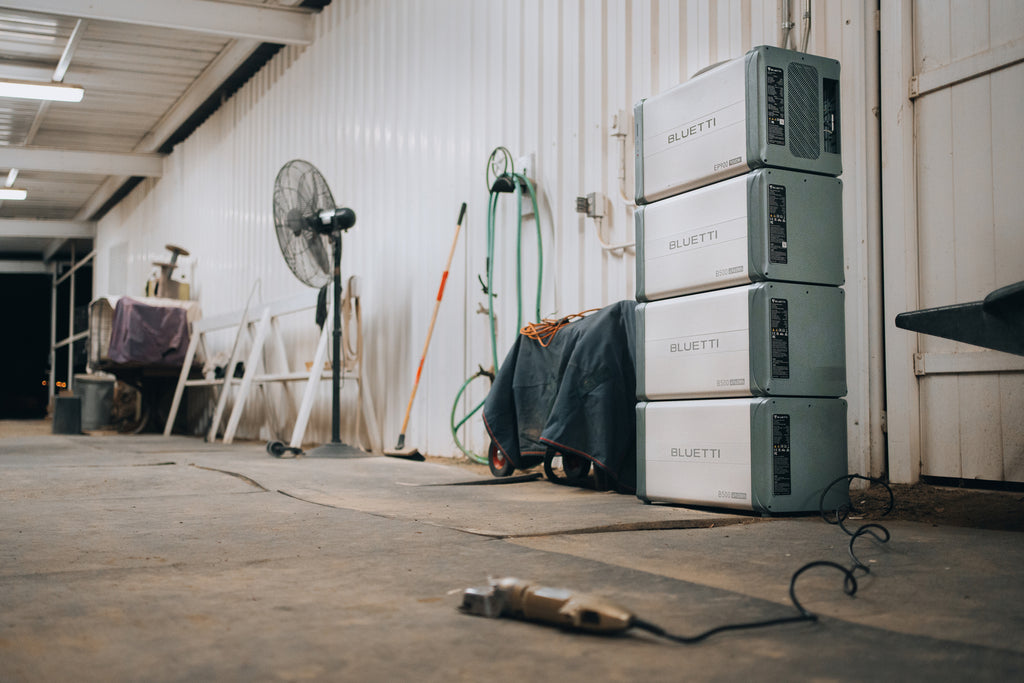
Buying the BLUETTI EP900 will automatically qualify you for the 30% Federal Tax Credit. This unit has a 9,920Wh capacity, expandable up to 19,840Wh, enough energy for small to large appliances. It is in fact a viable option if you live in areas prone to prolonged power outages.
The unit is IP65 rated, meaning you can install it outdoors since it can withstand rain and snow. The quiet power station is also ideal for indoor installation. And if you have an existing solar system, it will integrate with it seamlessly.
Tips for Choosing the Best Batteries for Your House
Now that you know types of solar batteries, let’s see how you can choose the best for your power needs. Aspects to consider include:
-
Power rating
A battery’s power rating is measured in kilowatts (kW). It indicates the power it can output at once. This rating depicts how many appliances it can run simultaneously. You should consider the starting and continuous power rating.
The starting power rating is the energy needed to jump start large appliances such as refrigerators. Continuous power is the normal running wattage. If you need to power large appliances, consider buying one with a high starting and continuous power rating.
-
Battery’s capacity
Besides the power rating, you should also consider the battery capacity. This is the amount of energy a battery can store. As you’d guess, the larger the capacity, the more the energy it can store and vice versa.
You need to consider the total and usable capacity before buying a solar battery. A battery with a 10kWh rating is ideal for most American homes.
-
Lifespan
You don’t want to buy a battery that will last for five years. Instead, you want one that will last for at least a decade. When determining the lifespan of the battery, you should consider the following elements:
- Charging cycles
- Estimated operating years
- Throughput
Most BLUETTI batteries have a 10-year lifespan and over 2500 charging cycles.
Final Thoughts
You’ll need at least 4 12V 100Ah batteries for a 3000 watt solar system. Some factors that will influence the actual number include the charge controller, power consumption, and battery capacity. When choosing batteries for your home, consider the lifespan, power rating, and battery capacity.






































































